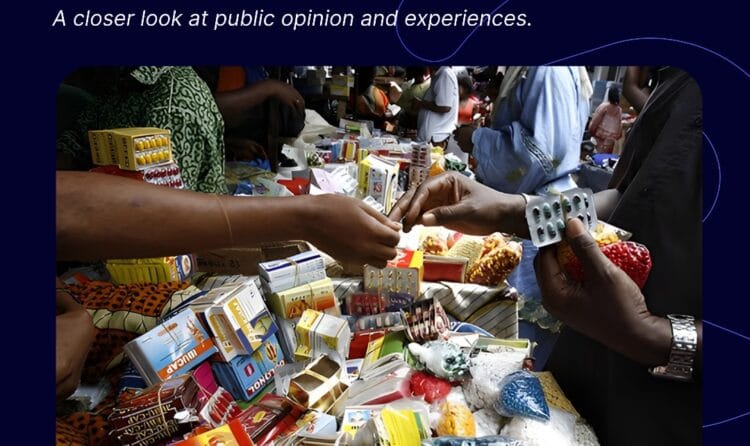CHILD MORTALITY IN NIGERIAN HOSPITALS REMAINS A PRESSING CONCERN
Child mortality in Nigerian hospitals is a growing issue that continues to generate concern across families, communities, and the health sector at large. The loss of a child is not just a personal tragedy but a reflection of gaps within the healthcare system that should be safeguarding young lives. Every year, Nigeria loses thousands of children under the age of five due to preventable causes that occur both inside and outside hospitals. This persistent problem has drawn the attention of both local and international health organizations who emphasize that the situation is a crisis requiring urgent and sustained intervention. When hospitals become places where survival cannot be assured, the very foundation of trust in healthcare delivery is weakened, leaving families feeling powerless.
Child mortality in Nigerian hospitals has roots in systemic barriers that span from poor access to qualified medical staff to shortages of critical drugs and equipment. Financial constraints also play a significant role in determining whether or not a child receives timely and effective treatment. In a context where poverty levels remain high and health insurance coverage is limited, many parents are unable to afford hospital services, which worsens the problem. This is why studying and understanding the voices of Nigerians who experience these challenges first-hand is essential. Research-based evidence can shape the kind of decisions that policymakers make and ensure that solutions address the real needs of the population.
At ResearchGains, we design surveys that explore such pressing issues and highlight data-driven insights that can guide interventions. The current survey reveals critical findings on the availability of medical staff, emergency response systems, the impact of healthcare costs, and public views on the most effective interventions. These findings not only provide evidence for the Nigerian context but also link to global priorities on child survival.
Experiences of child loss in hospitals
The survey revealed that seventy eight percent of respondents have either experienced or witnessed the loss of a child in a hospital setting. Only twenty two percent reported that they had not. This shows that child mortality is not a distant problem but one that is visible in everyday life for a majority of Nigerians. Such experiences create mistrust in hospitals and reinforce the urgent need for reforms in the healthcare system.
Availability of qualified pediatric doctors
Respondents were asked to rate the availability of pediatric doctors in hospitals. Thirty six percent described availability as adequate while thirty percent said it was inadequate. Twenty six percent rated it very adequate while eight percent rated it very inadequate. This variation reflects unequal access to specialized care across hospitals. The shortage of qualified pediatric doctors increases the risk of delayed treatment and misdiagnosis which can lead to preventable deaths.
Causes of child deaths in hospitals
When asked about the most common causes of child deaths, Nigerians identified several issues. Thirty four percent said lack of timely medical attention is the main factor. Delayed diagnosis was mentioned by twenty four percent while poor hygiene and infections accounted for twenty percent. Shortage of medical equipment and drugs was cited by sixteen percent and six percent chose other reasons. These findings suggest that the problem is not caused by a single factor but rather a combination of systemic weaknesses. According to UNICEF, timely interventions and basic equipment could prevent many of these deaths.
The role of healthcare cost
The role of healthcare costs cannot be ignored. An overwhelming ninety eight percent of respondents believe that cost contributes to child mortality. Of these, sixty six percent said it contributes significantly while thirty two percent believe it contributes to a lesser extent. Only two percent said cost does not play a role. This demonstrates how financial barriers prevent families from accessing the medical care their children need.
Key factors for survival
Respondents were also asked which factors they believe have the greatest impact on child survival. Forty percent identified the availability of trained medical staff as the most important. Quick emergency response was chosen by thirty two percent. Sixteen percent selected affordable healthcare and twelve percent pointed to functional medical equipment. These answers highlight that both human and infrastructural resources are necessary for improving outcomes.
Rating of emergency response
The quality of emergency response in Nigerian hospitals is also a concern. Only twenty eight percent rated it as excellent while thirty four percent described it as fair. Twenty two percent considered it good and sixteen percent said it was poor. This indicates that a large share of respondents see weaknesses in emergency care. In life-threatening situations for children, every second counts, and delays in response often determine survival.
Interventions for reducing child mortality
Finally, respondents were asked which interventions would have the greatest impact in reducing child mortality. Nearly half, forty eight percent, said affordable healthcare services would make the most difference. Twenty four percent pointed to more trained pediatric doctors, sixteen percent chose better emergency facilities, ten percent mentioned awareness campaigns for parents, and two percent selected increased supply of drugs and equipment. The findings reinforce the fact that affordability and accessibility are core to saving lives.
Conclusion
The findings from this survey show that child mortality in Nigerian hospitals is driven by multiple challenges including poor access to pediatric care, weak emergency response systems, high healthcare costs, and shortages in medical equipment. However, solutions exist. Affordable care, more trained doctors, and better facilities can dramatically improve outcomes. At ResearchGains, we remain committed to gathering the insights that make such solutions possible. More surveys and data are available on ResearchGains surveys.
Globally, organizations like the World Health Organization emphasize that reducing child mortality requires both government action and community engagement. Nigeria can make progress by prioritizing child survival in healthcare planning and ensuring that hospitals are equipped to save lives.
The voices of Nigerians are clear. With the right policies and interventions, child mortality in Nigerian hospitals can be significantly reduced.
References
UNICEF. “Child Survival.” Accessed September 2025. https://www.unicef.org/nigeria/child-survival
World Health Organization. “Child Health.” Accessed September 2025. https://www.who.int/health-topics/child-health





